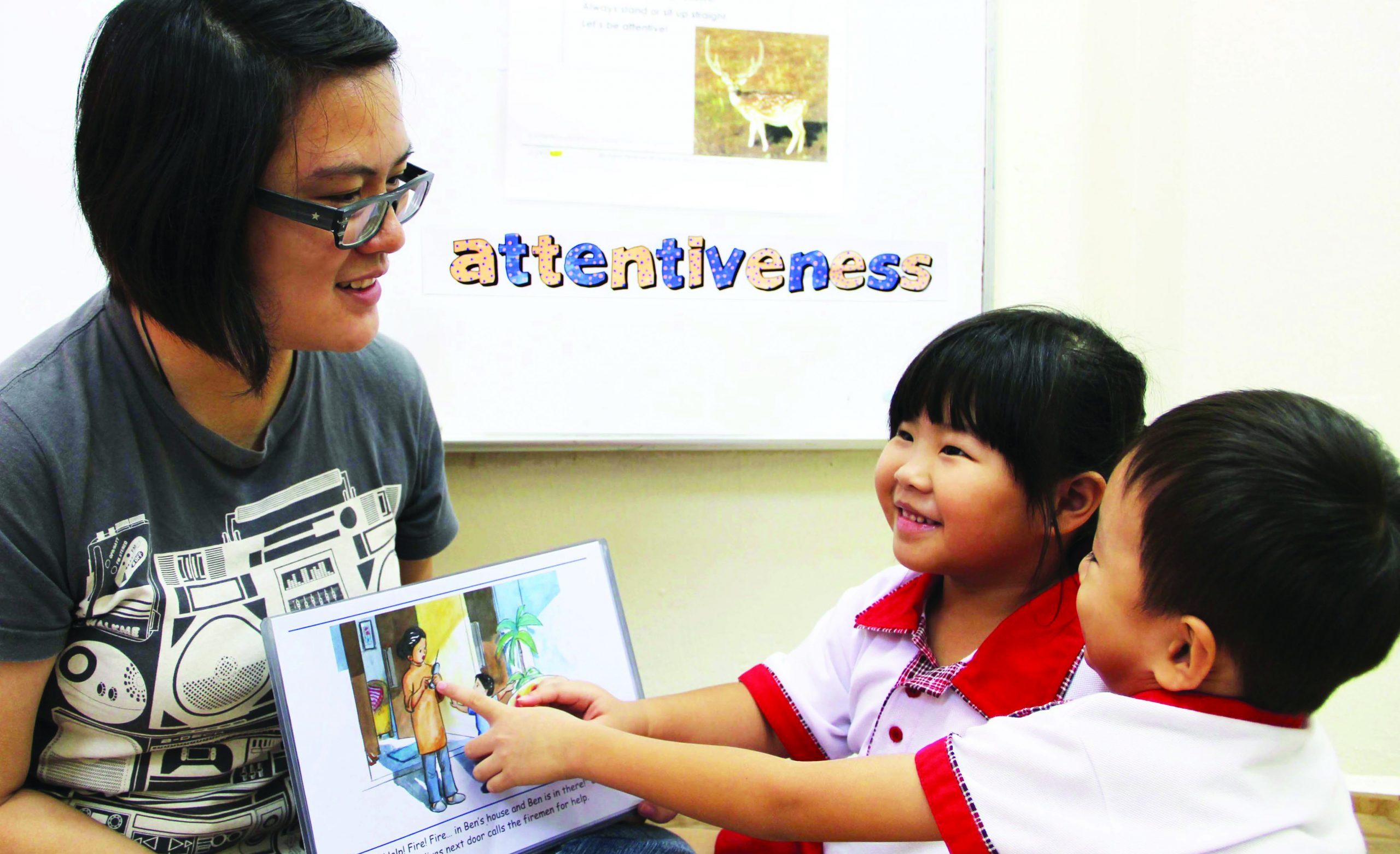Values such as caring and kindness, along with a positive attitude to do one’s best, will set your child up for lifelong learning and success.
One of you many roles as a parent is to prepare your child for life. As you try to impart important skills and knowledge to your little one, don’t forget key values such as honesty, respect, responsibility, fairness, caring and being a good citizen.
“These six pillars of character set behavior boundaries, help shape the make-up of your children and sustain them in the choices they make in life,” says Dr Gary Smit, a former school superintendent in the US who has been championing character education in schools and throughout the community in suburban Chicago for over 25 years.
A current National Faculty Member at the Josephson Institute of Ethics, Dr Smit believes that character building is just as important for your little one as learning his ABCs and 123s. These qualities, along with a positive attitude to do his best at school, will help him to become a lifelong learner, to work hard and to succeed in life.
LESSONS FOR THE HEART AND MIND
This is also the aim of the preschool programme at Character Montessori, which cultivates performance attributes (qualities needed for achievement) and moral character (required for ethical behavior in relationships) in its pupils, on top of its Montessori curriculum for language, mathematics and thinking skills.
Here, children learn the values of respect, responsibility and kindness, and also develop their self-esteem and communication skills. This ensures that they are academically, intellectually and socially ready for primary school as well as life ahead.
KIDS LEARN FROM WHAT YOU DO AND SAY
Dr Smit, who is currently the chairman of the board of the directors of The Abraham Lincoln Centre for Character Development, says: “Character building is a lifelong journey through to adulthood. For your preschooler, you should first cultivate the traits of honesty, respect and responsibility before you can successfully instill traits of kindness and caring.
These values are demonstrated in two ways: words and actions. As your child grows up, teach him the moral reasoning behind what we say and what we do or how we treat other people. Give simple reasons (“It is not worth lying – it is wrong and hurts people as well as your character”) and find opportunities to put what they have learnt into practice.
And when the situation arises, put your child in touch with his emotions (“How does it feel when someone calls you stupid or shoves you for no reason?”). Having him think about and discuss lessons from storybooks, or from observing other individuals who are mentors in certain character traits, also provide vicarious experiences for learning.
That’s why you, as a parent, play an all-important role. “Your children may not listen to much of what you say, but they observe and believe all that you do. So watch how you treat other people, your language and actions – because your child will do the same too,” adds Dr Smit
TAKE HEART
Dr Gary Smit suggests the following activity to take your child on a journey of self-discovery on the values of kindness and caring.
- Cut out a heart shape from an A3 drawing board paper.
- Ask your child to fold the heart shape into half for every unkind word or hurtful act he has said and done to another person.
- Then unfold the paper for every kind word or caring act he has said or done to another person. Even though he has unfolded the paper, the creases still remain and it’s hard to restore the heart to its original condition. SO why not avoid unkind words or hurtful actions. Ask him to reflect on what he has learnt.

